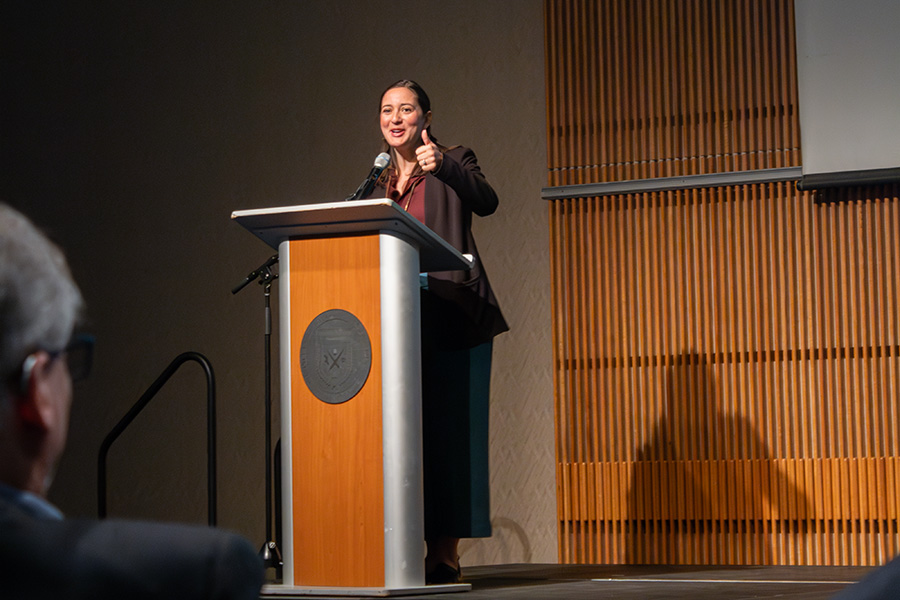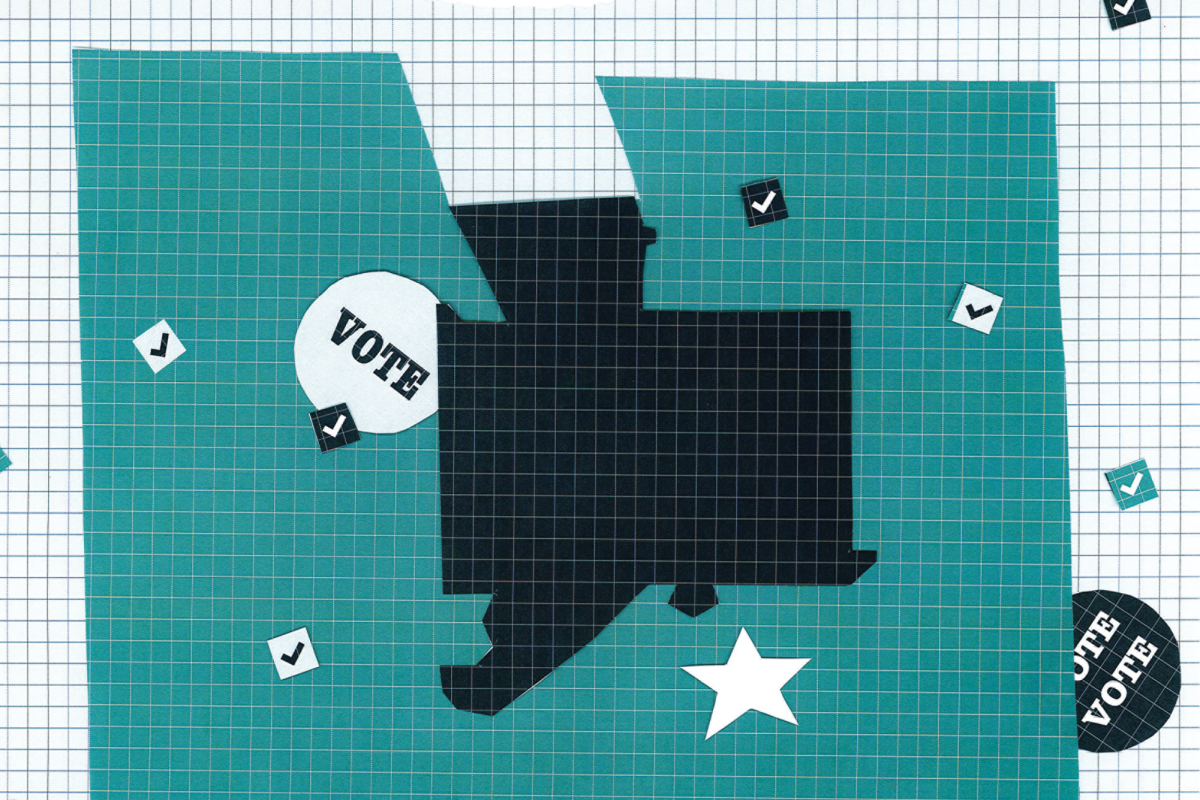On April 25, the Campus Climate Committee co-chairs, in association with representatives from Rankin Climate, a company that collects institutional climate assessment data, gave two community presentations about the Key Findings report that was released April 16.
The presentations were attended by a few dozen people each, and according to Belisa Gonzalez, dean of faculty equity, inclusion, and belonging and co-chair of the Campus Climate Committee, the goal is to send out a survey and present the findings like this every three years.
The Key Findings report was a summary of the results of a survey that went out in Fall 2023 to assess the climate of Ithaca College. The survey was filled out by 32% of the campus community, including students, staff and faculty. Melanie Stein, provost and senior vice president for academic affairs, said the survey was created with three main goals in mind.
“The first goal [was to] identify successful things that we’re doing,” Stein said. “Second, uncover any challenges that are facing members of our community. And then finally, the third prong is developing forward-moving, strategic initiatives that build on those successes, but address our points where we have challenges.”
During the community presentations, the Campus Climate Committee co-chairs and representatives from Rankin Climate broke down the Key Findings results in a slideshow. They displayed the demographics of those who responded to the survey and analyzed the results from each group, before comparing the responses from different demographics.
A common trend they found was that marginalized groups, like first-generation students, disabled students and students of color, tend to experience higher levels of discomfort and a lower sense of belonging than their cis, able-bodied or white peers. For example, 75% of total students who responded reported feeling “very comfortable” or “comfortable” on campus, but only 50% of Black students and 65% of Latino students reported feeling “comfortable,” while 0% of Black students and 20% of Latino students reported feeling “very comfortable.”
When asked about future plans to help increase the comfort levels for groups who reported low levels, Gonzalez said further analyzing the results is the next step.
According to the Campus Climate Committee co-chairs, the next big step to increasing levels of comfort and belonging is hearing more from campus community members. This step will be taken during four future “Developing the Next Steps Sessions,” which will be held April 30 for students and faculty, May 2 for staff and May 1 for everyone else.
“What we need to do is follow up with some different dives into the data and also some qualitative responses to try and figure out why folks are feeling a lack of sense of belonging, for example,” Gonzalez said.
Gonzalez said there is no specific timeline planned out yet, as the committee needs to continue gathering more information.
“The timeline that we have so far is we’re gonna have these [meetings] next week and we’ll take information as people give it to us,” Gonzalez said. “These questions were chosen very purposefully, but that doesn’t mean that something else is not going to happen in the fall or over the summer that we would need to address.”
Gonzalez also said some issues can be addressed sooner than others, depending on how much action and money they require.
“Sometimes we think of [some issues] as low hanging fruit: What are the obvious things we can move on?” Gonzalez said. “And then what are the things that are going to take more policy review and, really, thinking about budgets for the next three budget cycles?”
Judith Pena-Shaff, professor and chair of the Department of Psychology and co-chair of the Campus Climate Committee, also said that it will take time for the group to plan out what their next steps will be.
“The first thing we have to do is digest, and that’s what we’re doing next week and during the summer and probably in the fall,” Pena-Shaff said. “I think that’s the responsibility of everyone here.”
In terms of Ithaca College’s partnership with Rankin Climate, Victoria Cabal, Rankin Climate’s executive vice president of strategy and operations, said the company will continue working with the college to plan its upcoming course of action.
“Rankin Climate is not walking away from our partnership with Ithaca College, so we will continue being a part of the action planning process,” Cabal said. “So if attending one of these sessions either doesn’t fit in your schedule or feels a little intimidating, you are welcome to email us … and we can share those kinds of thoughts, ideas and feedback anonymously with the committee that will continue to engage in action planning. So please know that there are several avenues to continue to engage in this conversation.”
Stein additionally said that even though the survey fulfilled the group’s goals of finding out what the college is doing successfully and what challenges community members are facing, it is only the first step in what will be a long process.
“The delivery of this report really marks a significant milestone in our process, but it’s important to remember that this is not the end,” Stein said. “We need to see this process through to the stage of developing and delivering on initiatives that emerge from what we learned from the study.”















